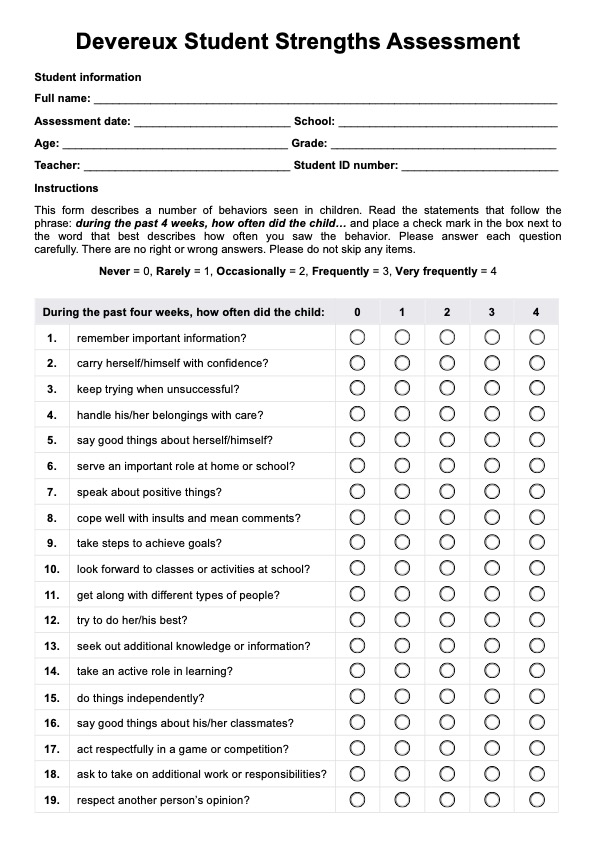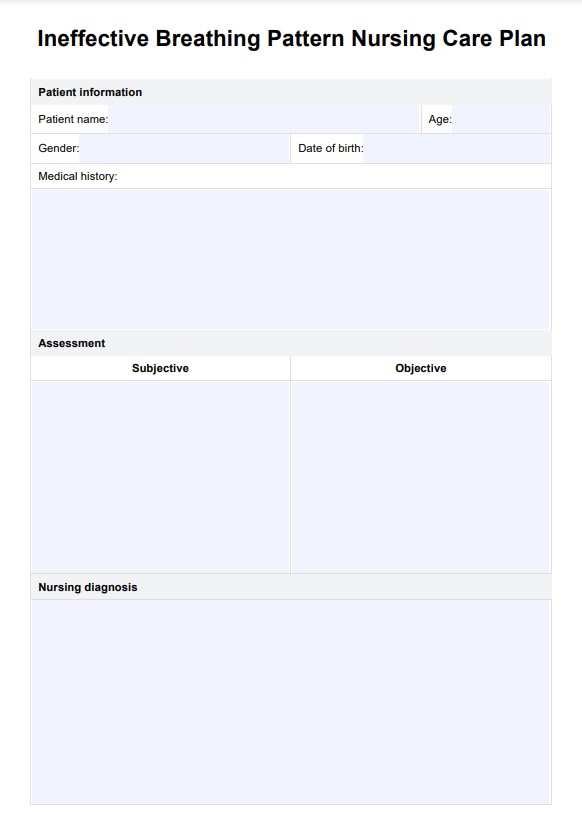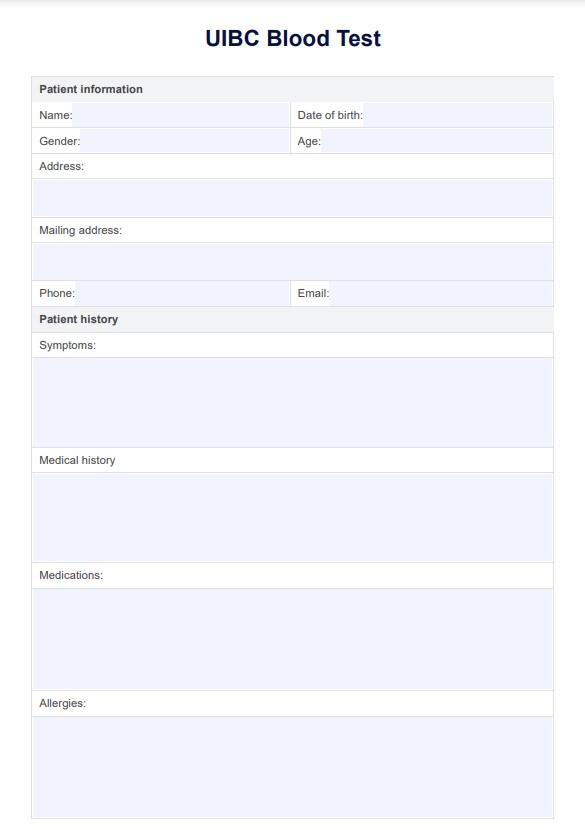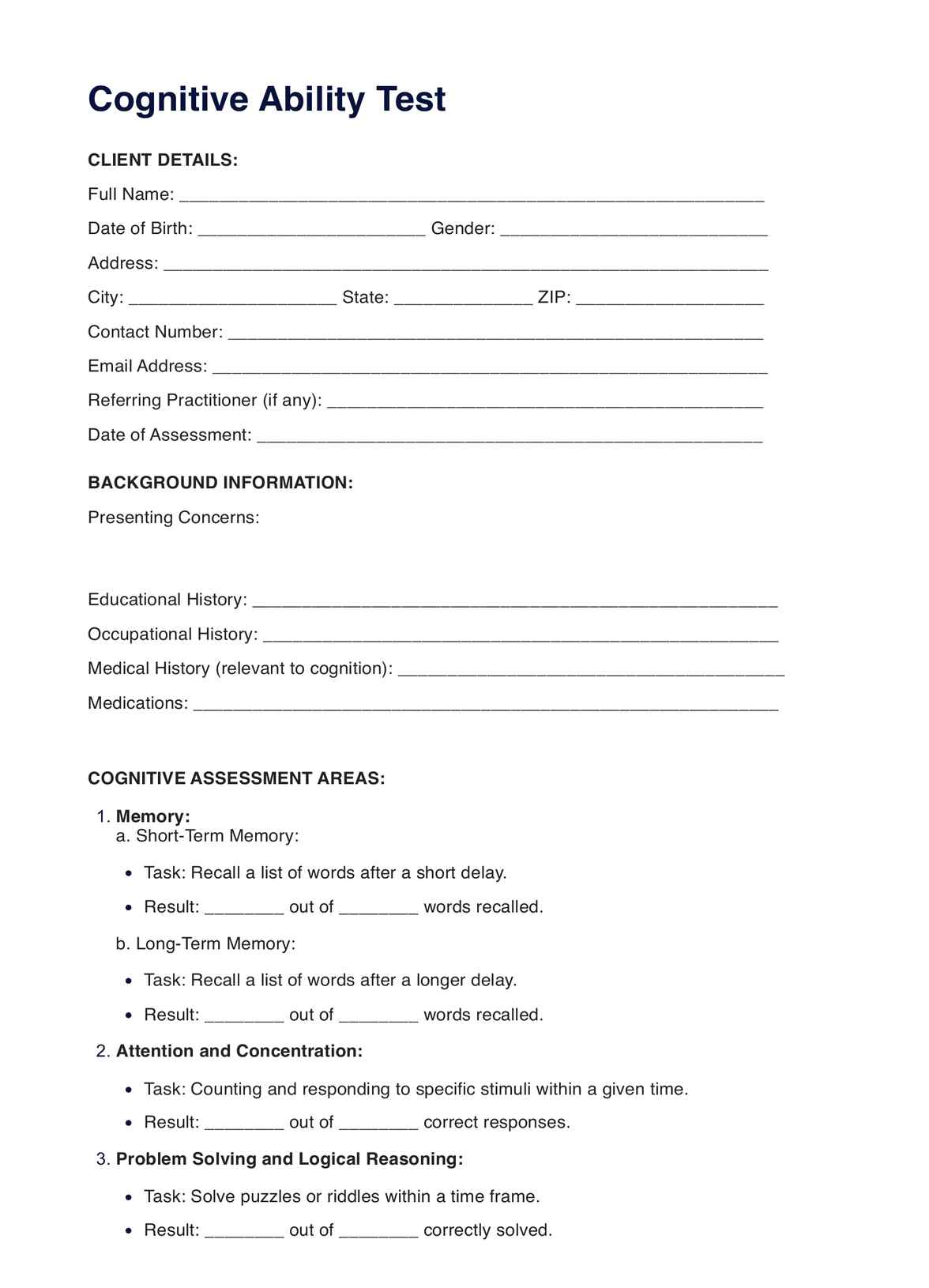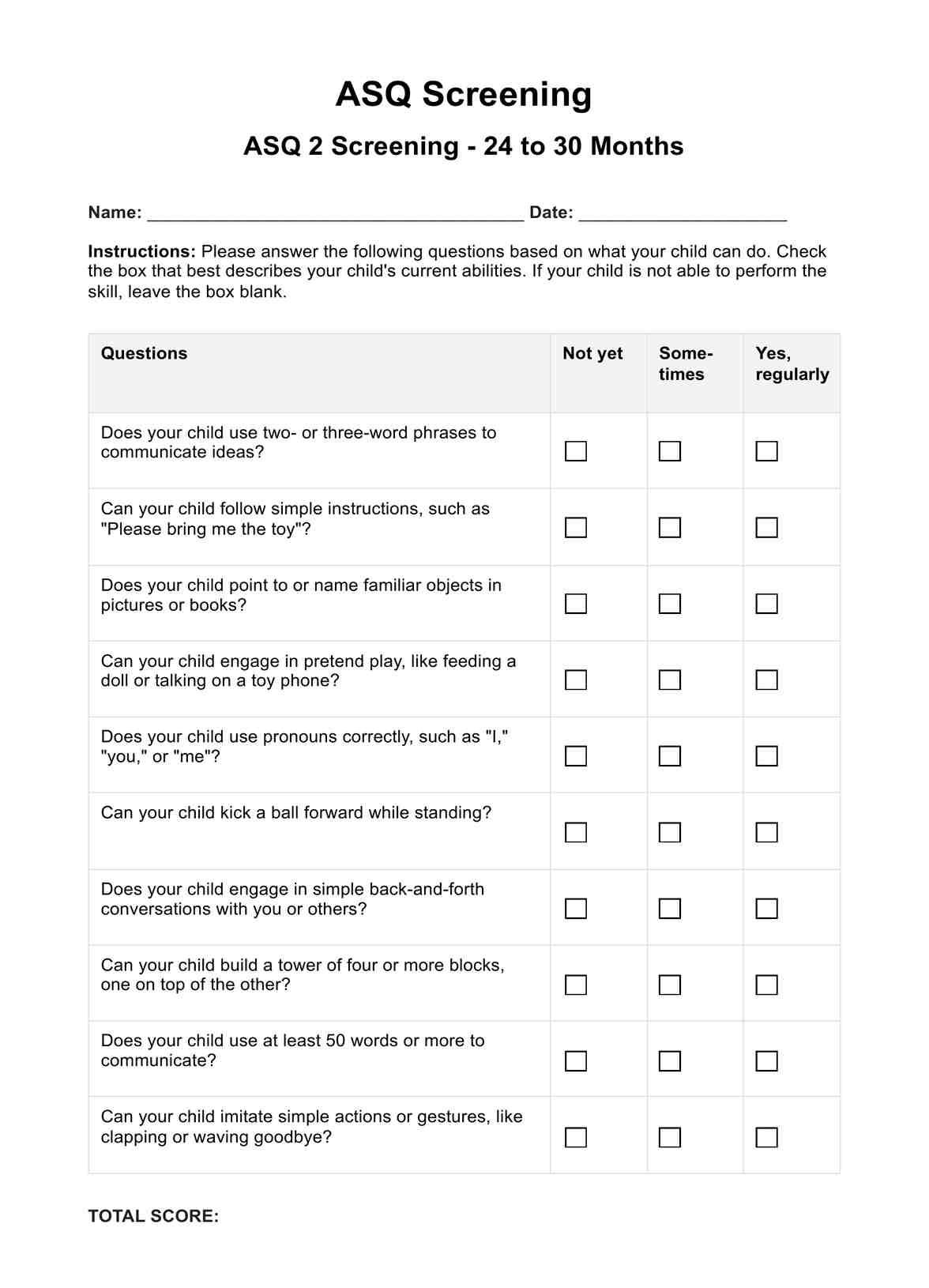Mental Health Daily Checklist
Explore the benefits of implementing a Mental Health Daily Checklist in your healthcare practice and how it can ease mental health concerns for your clients.


What Is a Mental Health Daily Checklist?
A Mental Health Daily Checklist is a tool that can be used not only in therapy sessions but within an individual’s own life to account for important daily tasks that can benefit their mental health. This resource can provide a solid ground for clients who want to preserve their mental health or work on spending more time each day incorporating activities that will enhance their mental health. These types of checklists can include what the individual and the therapist think would be good to focus on daily. Activities are not limited to extraordinary ones, they can simply be mundane activities that prove good for the individual’s mental health. Examples of different types of activities are:
- Busing your teeth twice daily
- Taking a shower
- Drink two or more cups of water
- Listen to music
- Read one chapter of a book
Our daily checklist for mental health not only works to promote positive mental health habits but also works to encourage other overall health habits. Activities that are identified to improve mental health like having a routine can encourage the unconscious implementation of those tasks to improve physical well-being. For example, if an individual identifies running for 30 minutes as a task that enhances their mental health, over time it may become an unconscious standard practice that has secondary improvements to the individual's physical health.
Mental Health Daily Checklist Template
Mental Health Daily Checklist Example
How Does It Work?
This Printable Mental Health Daily Checklist works by helping the individual to identify activities that they wish to engage in to benefit their mental health. Here are some step-by-step instructions on how to include the Mental Health Daily Checklist in your therapy sessions:
Step One: Obtain the Checklist
Obtain the Printable Mental Health Daily Checklist by going to the Carepatron website and accessing the free template to either download for online completion or print for in-session/homework tasks.
Step Two: Identify Positive Activities to Engage In
The great thing about this worksheet is that it can be completed as a homework task that your client can take home and return with their filled-in sheet. Or, if you’d rather work on the worksheet together, that’s okay as well! You can work together to identify positive activities your client could engage in daily to benefit their mental health.
Step Three: Fill in the Sheet
After some daily activities have been identified, you can guide the individual through filling out the daily checklist and explain to them that this works best when you check through those activities and check them off once they have been completed.
Step Four: Check In
The next time you see your client might be a good time to do a check-in of how well the mental health daily checklist is going. Are they sticking to their plan? Should they consider different tasks?
When Would You Use This Checklist?
The use of this checklist is completely up to you as a healthcare professional. We have highlighted some important times when implementing a Mental Health Daily Checklist might be beneficial for your client:
Stress Management
This Mental Health Daily Checklist can be beneficial for clients who are experiencing a stressful situation in their life. Those who might be trying to buy a house, lose or change occupations, divorce, or have other psychological concerns could benefit from creating this daily checklist.
Goal Setting & Motivation
A daily checklist can be really helpful for individuals who struggle to keep to a routine that is positive for them. Being able to visualize their daily goals and work through them can help add structure to their day and overall life.
Self-Awareness
Identification of positive daily habits can also help a client’s self-awareness. If you notice your client may benefit from this practice, implementing a mental health daily checklist could help them to identify activities that make them happy and act as a de-stressor. Completing positive activities daily may also build habits and help your client notice how those activities create patterns in their life.
Crisis Prevention
Clients who are struggling with psychological concerns that leave them in crisis may also benefit from having a mental health daily checklist. This checklist can act as a preventative measure to help individuals add structure to their day, as well as, a safety plan for activities they know bring them happiness when they notice that things are not on track.

What do the Results Mean?
The great thing about Carepatron’s Free Mental Health Daily Checklist is that the results are completely up to the healthcare professional to decide. There are many stages when the results of the checklist could be decided. When your client has identified daily activities for their checklist, you might decide that this is a good time to stop and talk about what they have considered adding to their checklist - or you might find that the results of how well they are sticking to their plan are worth discussing with them.
For example: if you and your client work together to create a daily checklist for their mental health and they haven’t been completing it - this could mean that there needs to be a change in their mental health daily checklist, but also that there may be things in their life stopping them from completing the tasks. Either way, this is something valuable to look into. There are no specific results we recommend looking for, it is better to use your clinical judgment when it comes to steering the conversation.
Research & Evidence
There has been an increased level of research that has been conducted regarding self-care checklists. A study that focused on comparing individuals who had a daily checklist to individuals who did not have a daily checklist by Brown (1998) displayed significant support for those who were actively using their daily checklist. In their study, they concluded that using a daily checklist was useful in evaluating the engagement level in daily activities.
Brenner (2020) suggests that by establishing a daily checklist, individuals can set aside time to nurture tasks that they enjoy which helps individuals to enhance their mental and physical health. Brenner (2020) also states that there have been studies to show that daily checklists create routines that have mental health benefits such as alleviating bipolar disorder and preventing substance abuse.
References
Brenner, B. (2020, September 30). The Mental Health Benefits of Having a Daily Routine. Therapy Group of NYC. https://nyctherapy.com/therapists-nyc-blog/the-mental-health-benefits-of-having-a-daily-routine/#:~:text=By%20establishing%20a%20daily%20routine
Brown, C. (1998). Comparing Individuals with and without Mental Illness Using the Daily Activities Checklist. The Occupational Therapy Journal of Research, 18(3), 84–98. https://doi.org/10.1177/153944929801800302
Commonly asked questions
You can begin the process of creating your Mental Health Daily Checklist by identifying what activities you enjoy and prove positive for your mental health. You can work with the client to do this or use this as a homework task.
They can be used in a variety of different contexts. Healthcare professionals may use their clinical judgment on the benefit of a Mental Health Daily Checklist to determine their efficacy in the client’s life. They are most helpful when the individual is cooperative and collaborative on the template.
They can be used in therapy sessions or as a homework task for the client to complete. The client will then take the completed form home and begin to fill out their daily checklist after completing the activities they have identified.
Anyone! The great thing about the Mental Health Daily Checklists, as well as other checklists available on Carepatron, is that they can be completed by anyone. No matter their situation, if the healthcare professional feels that it would be beneficial to incorporate one into the daily life of their client - there are no required prerequisites!


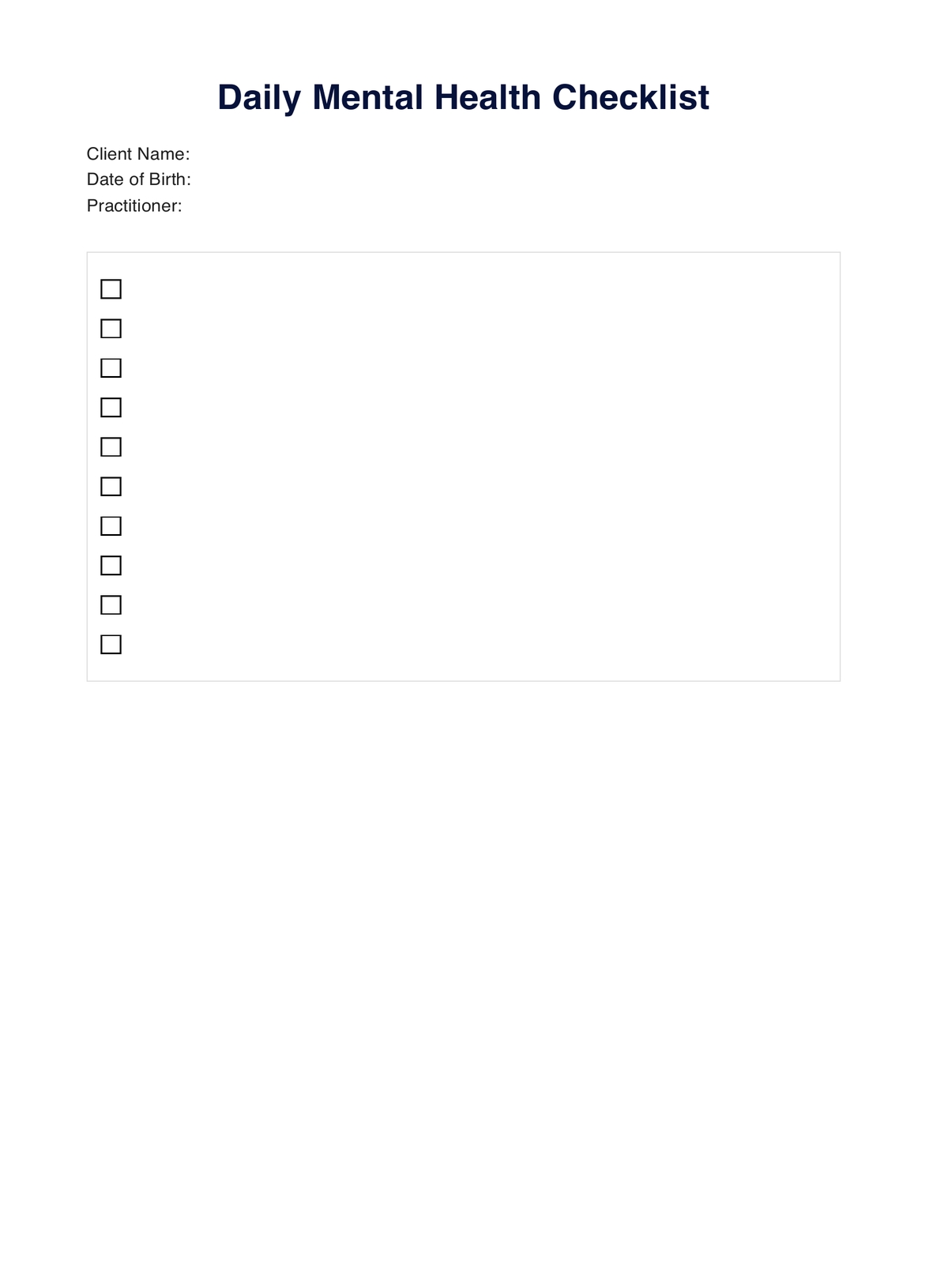
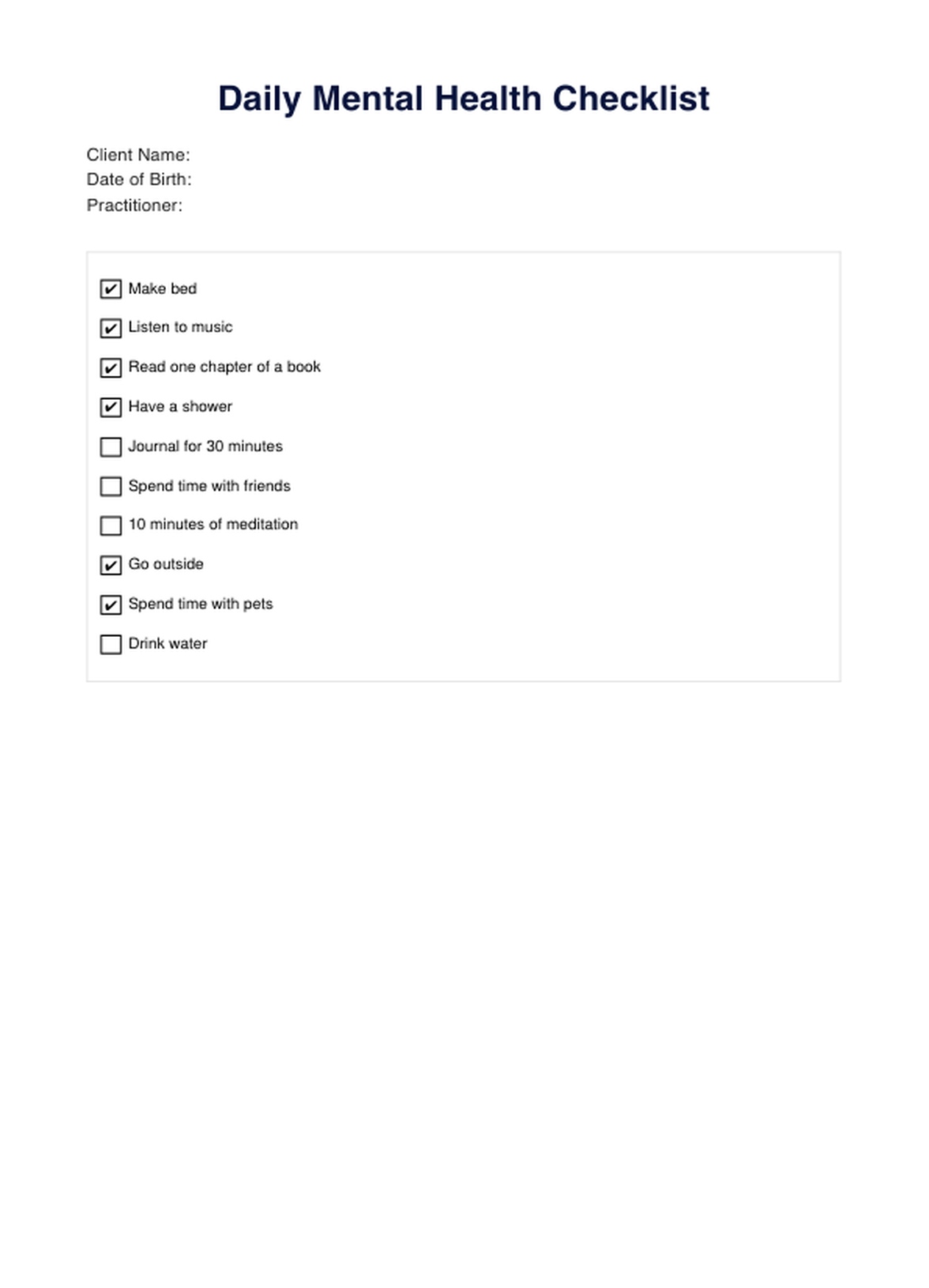

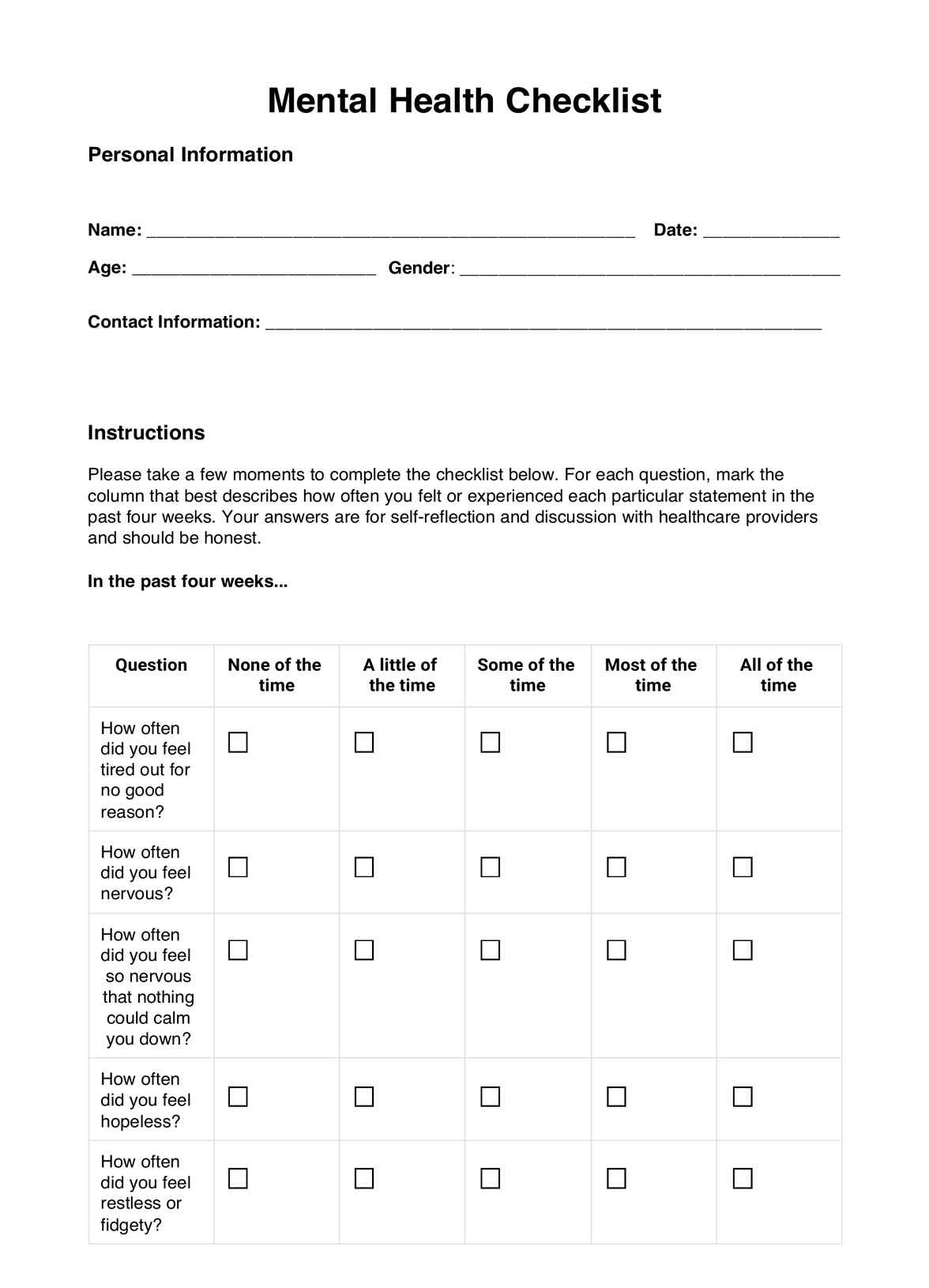
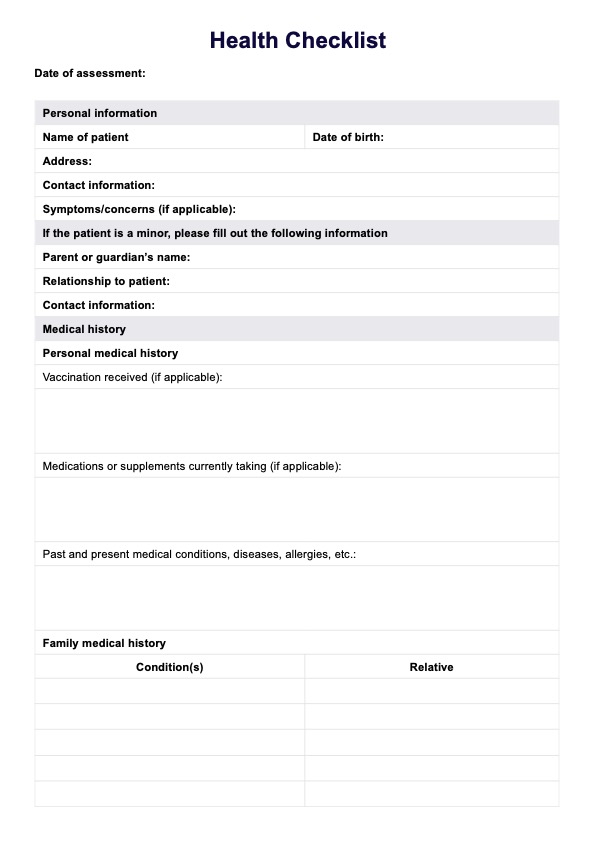
















-template.jpg)



























